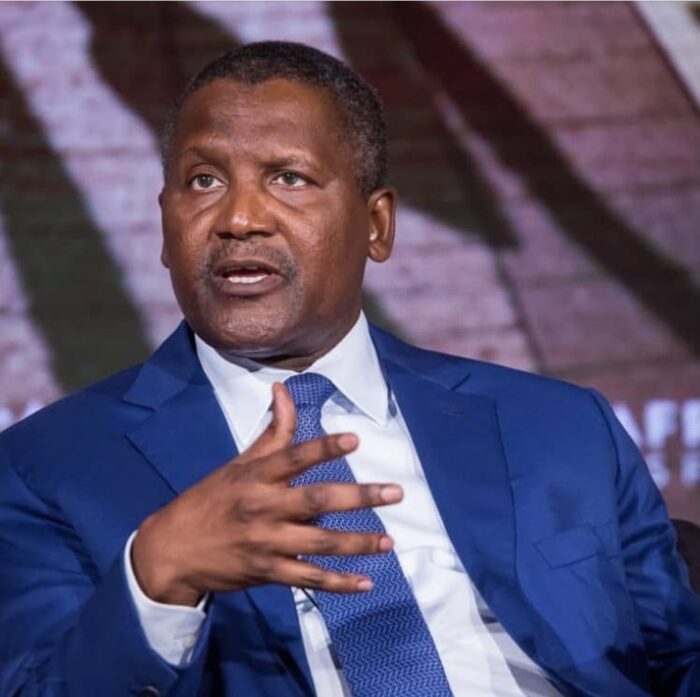Business
Do The Controversies Surrounding Dangote Refinery Suggest That Nigeria Is Its Own Enemy?, by Isaac Asabor

In the complex tapestry of nationhood, we often hear the adage that “A country is its own enemy.” But what does this cryptic sentiment truly signify? As the Dangote Refinery grapples with controversies, the meaning is by each passing day becoming clearer than ever.
Despite the fact that the Dangote Petroleum Refinery and Petrochemicals Ltd was envisioned as Nigeria’s beacon of energy independence, its recent disputes have cast shadows over its promise as regulatory authorities accused it of producing sub-standard petroleum products, a claim vehemently denied by the company.
Amidst this turmoil, former Kano State Governor RabiuKwankwaso weighed in, warning that vested interests could harm investor confidence in our fragile economy.
Kwankwaso who weighed in on the disagreement between the Refinery’s management and the regulatory authorities on Wednesday, July 7, 2024 through a reaction on his X handle, blamed what he described as ‘unnecessary fusses on vested interests, saying it could damage investor confidence in the Nigerian economy.
“The creation of unnecessary fuss around its integrity by some vested interests is very unfortunate, and it stands to undo all the years of hard work to maintain the fragile investor confidence in our economy,” he said.
In a similar vein, a former Minister of Education, ObyEzekwesili, has called for an independent audit of business dealings between the Nigerian National Petroleum Company Limited (NNPCL), and the Dangote Refinery.
Reacting to the controversies, Ezekwesili through her official X handle, bemoaned the controversies surrounding the refinery, and somewhat pondered as she stated, “However, as more and more information filtered out from both parties, we can reasonably conclude that something seriously murky has gone on and needs to be fully unraveled for public accountability. And urgently, too,”
The former minister also ponderingly asked, “How can a project that by all definition attained the stature of a ‘national interest project’ be marred in this depth of embarrassing controversy that is playing out in the full glare of the local and international investing community?
“Did the Nigerian government not tell us it borrowed $3.3bn from AfreximBank to take a stake in the Dangote refinery?”
Ezekwesili recalled that during former President Olusegun Obasanjo’s administration that she told the NNPC that it could not run as a federation on its own.
“When we were in government, I often told the NNPC leadership that they cannot carry on as though there is a ‘Federal Republic of the NNPC’ just because they think of themselves as ‘the goose that lays the golden egg’.
“The opacity of the NNPC was the reason we took great delight in designing the multi-stakeholders Nigeria Extractive Industries Transparency International (NEITI) in those early 2000s that I pioneered as Chairperson.
“We went above global minimum voluntary standards of transparency requirements by entrenching ours in an Act that established NEITI as the transparency regulator of the oil and minerals sector,” she explained.
She called on President Bola Tinubu “to immediately use the instrumentality of NEITI to launch an independent audit of the Dangote refinery-NNPC transaction to offer the public the true state of play.”
Also weighing in on the controversy surrounding Dangote refinery is a Senior Advocate of Nigeria, OlisaAgbakoba who has warned the NNPCL not to take over the Dangote Refinery.
Agbakoba was reacting to a comment by the businessman that the NNPCL should buy the refinery if that would put an end to calling him a monopolist. This is as Dangote made the comment amid the controversies surrounding his 650,000 barrels per day refinery.
It will be recalled that the Nigerian Midstream and Downstream Petroleum Regulatory Authority’s (NMDPRA), Chief Executive, Farouk Ahmed, had said Dangote and other local refineries have been producing inferior fuels.
Aliko Dangote, however, denied the allegations by testing diesel from his refinery on July 20 when federal lawmakers visited the plant, and also called for a probe into the allegations of the NMDPRA. On July 22, the lawmakers launched investigations into claims that local refineries, including the Dangote refinery, produce inferior products.
They said allegations that the International Oil Companies (IOCs) in Nigeria are frustrating the survival of the Dangote refinery will also be probed. Consequently, the House of Representatives asked the federal government to suspend Ahmed over “unguarded comments”.
Addressing the dispute, SegunAjayi-Kadir, MAN director-general (DG), said government regulatory agencies should promote an enabling business environment to ensure the success of local investments.
Ajayi-Kadir said no regulatory agency should be seen “casting a shadow over a homegrown investment like the Dangote refinery”.
He said local investors are not only drivers of economic growth but also champions of national development.
“They are the mirrors of our national industrial aspirations and their wellbeing is the attraction for both local and foreign would-be investors,” Ajayi-Kadir said.
“There is hardly any major foreign investor that would be encouraged to invest in Nigeria by the recent unwarranted castigation of Dangote refinery.”
He said the allegations of poor quality, monopolistic tendencies and non-issuance of licence have since been debunked.
Ajayi-Kadir, however, said a clarification might be necessary to clear the Dangote refinery of the negative perception caused by the allegations.
The DG said local investors in Nigeria, particularly Dangote Industries Limited, play a vital role in driving economic growth by paying taxes, creating jobs and fostering development within the country.
He said as such, it is essential to protect and provide the necessary support to these investors to help them thrive in the current business environment.
“A business colossus like AlhajiAliko Dangote, with investments in diverse sectors of the economy and across the continent of Africa, should be accorded all needed support to grow and invest in more sectors and positively impact the wellbeing of the people,” Ajayi-Kadir said.
“There is no gainsaying the fact that Dangote refinery is deserving of government protection and support.
“The Dangote refinery, located in Lagos, the largest single-train refinery in the world, will play a significant role in reducing Nigeria’s dependence on imported petroleum products, reduce cost and energy poverty and significantly boost our energy sufficiency.
“This is also a company in which Nigeria and Nigerians are shareholders.
“We should never encourage or promote a preference for imported products over local alternatives. This amounts to importing poverty and exporting prosperity.”
Ajayi-Kadir said the manufacturing sector is facing numerous complex challenges.
These challenges, he said, include the high cost of electricity, high cost of compliance with regulatory requirements, lack of access to financing, unfavorable foreign exchange and unfair competition from imported and smuggled products.
The director-general urged the government to take proactive measures to address these binding constraints to improve the competitiveness of local industries and enhance their contribution to the country’s gross domestic product (GDP).
He said supporting and protecting local investors would signal to foreign investors that the environment is favorable for investment, leading to job creation and a more prosperous future for the country.
Ajayi-Kadir called on the government to prioritise the protection of local investors and actively take necessary steps to improve the operating environment for manufacturers and other economic operators to thrive.
Given the forgoing unpalatable backdrop, it is expedient for the enigma to be unraveled by asking, “Do the Controversies Surrounding Dangote Refinery Suggest That Nigeria Is Its Own Enemy?” Perhaps. The Nation’s internal struggles which cut across tribalism, corruption, and bureaucratic inertia often undermine progress. Like a serpent devouring its own tail, we grapple with challenges that hinder growth and prosperity.
Against the foregoing backdrop, it can be conjectured that Nigeria’s diversity is both a strength and a weakness, this is as tribal affiliations sometimes overshadow national unity. In fact, when tribal interests supersede the common good, progress falters.
Not only is Nigeria been thrown into the quagmire of tribalism, corruption is also by each passing day corroding our institutions, and consequently weakening the very fabric of our nation. The Dangote Refinery saga reflects this malaise. Transparency, accountability, and ethical leadership must prevail. Only then can we break free from the shackles of self-sabotage.
In fact, our bureaucratic maze is no doubt stifling innovation as revealed in the ongoing controversies between Dangote Refinery and the regulatory agencies, particularly in the areas of licensing processes and international standards, even as the imbroglio graphically paints a pictureof a battleground for vested interests. Without a doubt, it is not a misnomer that we must streamline procedures, foster collaboration, and prioritize national assets like Dangote’s refinery.
As the controversy swirls, let us heed Kwankwaso’s plea: Rally around this national asset for Dangote Refinery not to fail. Our government must demonstrate fairness and confidence in critical investments. Only then can we rewrite the narrative of self-sabotage.
In the end, the Dangote Refinery controversy mirrors our collective struggle. Let us unravel the enigma, transcend tribalism, eradicate corruption, and dismantle bureaucratic barriers. For Nigeria’s true enemy lies within, but so does its salvation.
Given the foregoing, it is expedient to ask, “Do the controversies surrounding Dangote Refinery suggest that Nigeria is its own enemy?
























